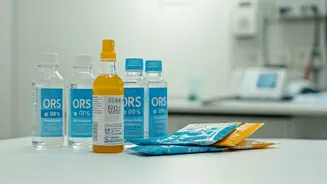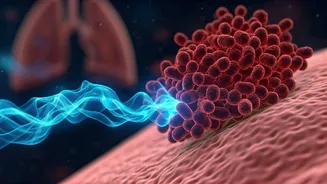The ORS Dilemma
ORS, or Oral Rehydration Solution, is a life-saving concoction, especially during times of dehydration, and its utility is globally recognized. Nevertheless,
a trend has emerged wherein the market is filled with beverages that are similar to ORS. These drinks present a deceptive allure for consumers seeking quick rehydration. The problem lies in the fact that many of these products are not regulated or standardized, which raises genuine concerns about public health. The article emphasizes that this surge of drinks, claiming to offer hydration benefits, requires close scrutiny and immediate attention from both health experts and policymakers. This issue of unregulated beverages poses a potential health crisis, specifically for vulnerable groups such as children and the elderly, where dehydration can escalate into a severe health threat rapidly.
Ingredients Under Scrutiny
A deep dive into the ingredients often reveals the crux of the problem. Many of the ORS-like drinks are loaded with high levels of sugar, and artificial sweeteners which can lead to adverse health outcomes. Contrary to the balanced electrolyte composition of genuine ORS, these drinks sometimes feature an imbalance of electrolytes that can disrupt the body's delicate systems. Excessive intake of sugar contributes to the risk of conditions like diabetes, while artificial sweeteners have also been associated with several health issues. This becomes particularly worrying with children, as these ingredients might influence long-term health. The absence of stringent regulatory oversight means that consumers are often unaware of the actual composition of these beverages, leaving them vulnerable to potential risks. Furthermore, the over-reliance on these drinks by individuals seeking rehydration also masks the importance of other approaches to address dehydration such as adequate water intake or the consumption of genuine ORS.
Health Risks Explained
The health risks are multifaceted, underscoring the urgency for a comprehensive evaluation of ORS-like beverages. The high sugar content can lead to a surge in blood glucose levels, predisposing individuals to insulin resistance and type 2 diabetes. Furthermore, the imbalances of electrolytes found in many of these drinks can be harmful. Consuming excessive sodium can elevate blood pressure, and imbalances in potassium, magnesium, and other vital minerals can trigger heart problems. For children, the risks are often intensified, as their developing bodies are more vulnerable to the adverse effects of excess sugar and electrolyte imbalance. Moreover, the long-term impacts of consistently consuming such drinks are currently under-researched, amplifying the concerns about their safety. This necessitates a national dialogue among healthcare professionals, regulatory bodies, and consumers to outline guidelines to protect people from potential health hazards.
Need for Dialogue
The urgent call for a national discussion and consensus on the sale of ORS-like drinks is critical to safeguard public health. The absence of regulatory standards opens up vulnerabilities that need to be addressed at the policy level. A collaborative approach that involves regulatory bodies, healthcare professionals, and consumer advocacy groups is necessary to create and implement enforceable regulations. It should be mandatory for manufacturers to provide clear and precise labeling, which includes complete ingredient information and health warnings. Furthermore, consumer education plays an integral role in promoting awareness about the differences between genuine ORS and its imitation. The government must initiate public awareness campaigns to equip the populace with the knowledge to make informed decisions about their health. Such campaigns could outline the importance of proper hydration and provide guidelines on selecting and using rehydration solutions safely, along with promoting awareness of the risks of consuming drinks with high sugar content and imbalanced electrolytes.
Recommendations for Action
To address the hazards posed by ORS-like drinks, several key recommendations for action are important. The first is to establish and enforce strict guidelines for the manufacturing of these beverages, including a limit on sugar and artificial sweetener usage. The products must be categorized and appropriately labeled, clearly distinguishing them from genuine ORS. Secondly, healthcare professionals should be at the forefront of educating the public about the risks associated with these beverages and promote the use of safe rehydration methods. Medical professionals also have a responsibility to address misinformation and advocate for better product standards. Third, continuous monitoring of these products in the market is crucial to ensure adherence to regulations and promptly address any violations. The government, regulatory bodies, and consumer advocacy groups should work collectively to provide the public with the relevant information needed to make informed and healthy choices.














